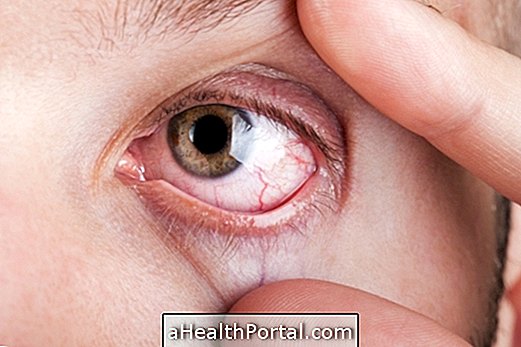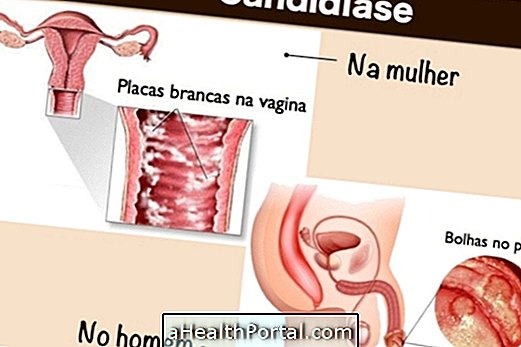Staying with wet panties during pregnancy may indicate an increase in intimate lubrication, involuntary loss of urine, or loss of amniotic fluid, and to know how to identify each of these situations, one should note the color and smell of the panties.
When you think you may be losing amniotic fluid in the 1st or 2nd trimester, it is advisable to go immediately to the emergency room or to the obstetrician as soon as the liquid is out, as this may impair the development and growth of the baby.

How to know if I'm losing amniotic fluid
In most cases, the loss of amniotic fluid is only confused with the involuntary loss of urine that happens due to the weight of the uterus on the bladder.
A good way to know if it is loss of amniotic fluid, loss of urine or if it is just increasing the lubrication of the vagina is to put an intimate absorbent in the panties and observe the characteristics of the liquid. Usually the urine is yellowish and smells while the amniotic fluid is clear and odorless and the intimate lubrication is odorless but can have an egg white appearance, as it does in the fertile period.
The main symptoms and signs of amniotic fluid loss include:
- The panties get wet, but the liquid has no smell, no color;
- The panties get wet more than once a day;
- Decreased baby's movements in the uterus, when there has been a greater loss of fluid.
Pregnant women with risk factors such as high blood pressure, diabetes or lupus are more likely to have loss of amniotic fluid, but this can happen to any pregnant woman.
Learn to identify the involuntary loss of urine in pregnancy, and what to do to control it.
What to do if you are losing amniotic fluid
The treatment for loss of aminobic fluid varies according to gestational age:
In the 1st and 2nd quarter:
Medical help should be sought immediately but treatment is usually done with weekly visits to the obstetrician to assess the amount of fluid throughout the pregnancy. When the doctor makes the ultrasound and discovers that the liquid is very low it can be recommended to increase the water intake and to maintain the rest to avoid the loss of more liquid.
In the 3rd quarter:
When fluid loss happens late in pregnancy, this is usually not serious, but if the woman is losing too much fluid the doctor may even choose to anticipate delivery. If this loss occurs after 36 weeks, it is usually a sign of rupture of the membranes and therefore one should go to the hospital because the time of delivery may be coming.
Here's how to treat reduced fluid in: What to do in case of reduced amniotic fluid.
What can cause amniotic fluid loss
Causes of amniotic fluid loss are not always known. However, this can happen due to genital infectious pictures. It is therefore recommended to consult the obstetrician whenever symptoms such as burning, genital pain or redness appear, for example.
Other causes that may lead to loss of amniotic fluid or lead to a reduction in its amount include:
- Partial pouch rupture - the amniotic fluid begins leaking because there is a small hole in the pouch. It is more frequent at the end of the pregnancy and normally the opening closes alone with rest and good hydration;
- Placental problems - the placenta may not be producing enough blood and nutrients for the baby and it does not produce as much urine, with less amniotic fluid;
- Medications for high blood pressure, premature labor and ibuprofen affect the baby's kidneys by decreasing the amount of amniotic fluid;
- Baby anomalies - At the beginning of the second trimester, the baby begins by swallowing the amniotic fluid and eliminating it through the urine. When there is loss of amniotic fluid, the baby's kidneys may not develop properly;
- Fetus-fetal transfusion syndrome - In the case of identical twins, one may receive more blood and nutrients than the other, causing one to have less amniotic fluid than the other.
In addition, some medications, such as ibuprofen or high blood pressure medicines, may also decrease the production of amniotic fluid, so the pregnant woman should tell the obstetrician before taking any medicine.





















